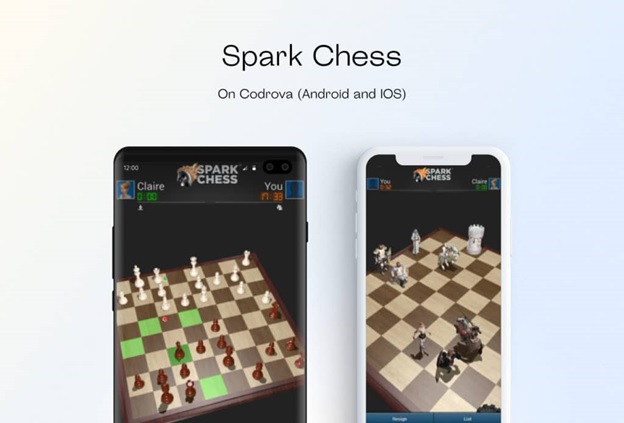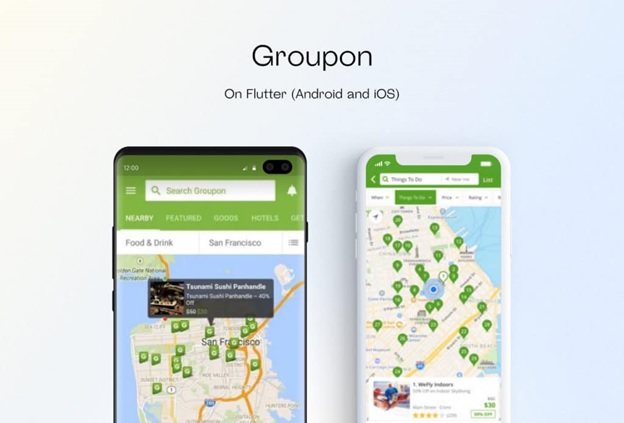App developers rely heavily on software tools to help them with their work. Over the years these tools have evolved and therefore there are many different options. In the beginning, they had platform-specific technologies which meant they had to work with a certain set of tools and technologies. Now, in 2021, cross-platform technologies have come into their own, and they now have so many more options. Two of the most popular frameworks for cross-platform app development are Flutter and Apache’s Cordova.
Overview of the two frameworks
Apache Cordova
Apache Cordova was first created back in 2009 by a company called Nitobi Software. On October 3, 2011, Adobe, Inc. acquired Nitobi Software for an undisclosed amount of money. After the purchase, Adobe rebranded Apache Cordova to Phone Gap and after a person of time, Adobe eventually decided to change the name back to Apache Cordova. App makers all across the globe have been using this framework for developing theirs. Below is just a small example of some of the most recognizable apps that have been created using the Apache Cordova framework.
- Untappd
- Localeur
- SparkChess
Flutter
Flutter is a very popular app framework that was developed by Google and was released in 2017. While it is still very new as compared to its counterpart, Apache Cordova, Google’s development team still maintains and continues to make improvements to this framework to help its users to create only the highest quality apps. The following are just some of the most recognized apps that have been created using the Flutter framework.
- Baidu
- Groupon
- Grab
- more apps built with Flutter
How does each of them work?
Flutter
The Flutter framework runs on a programming language called Dart. You build your apps using objects called widgets and everything builds off of them. Despite it being a relatively young framework, it has the full backing of Google and an ever-growing community of programmers. The Flutter framework comes packaged with an extensive library of widgets which makes it a really good choice for building apps. Can be sure that you will be able to build some very modern and impressive-looking apps.
Apache Cordova
The open-source framework Apache Cordova is designed to be used to develop apps using traditional standard technologies like; HTML5, JavaScript, and CSS3. These types of apps that are created using Apache Cordova have multiple HTML5 pages. These pages are all built around the app’s native platform. Since it is more than 12 years old, the Apache Cordova community is very vast and enthusiastic. With a goal that is all about helping other developers get the most bang for their buck. It also features a very large library of plugins that are free-use plugins.
Debugging and Repairing Issues
Flutter
The Flutter framework makes testing your apps before launch by including powerful debugging tools. This feature plays an important role in the app development process. It makes it extremely fast and easy to determine if there are any significant errors in your code. This built-in process automatically analyzes your code looking for any issues. The is also a Hot Reload feature that instantly updates the app if any changes are made. This eliminates the need to refresh the whole app every time any changes are made.
Apache Cordova
Apache Cordova lacks the automated code analysis that is found in Flutter. It does, however, come with some debugging tools that are very convenient. It comes packaged with LiveReload which can be easily launched to compile your code after any changes have been made. The lack of automated code analysis makes it considerably less desirable than Flutter.
Winner: Flutter
User Interface
Apache Cordova
Any apps built on the Apache Cordova framework feature a user interface that is web-based within a WebView. This makes it possible for a single app to carry a similar look across iOS, Android, and other platforms. Unfortunately, this is not always a good thing when there are so many similarities. This can also give users a negative opinion of the apps since they lack a native feel. This is because it looks too much like the website.
Flutter
Flutter on the other hand does not take the native UI elements of the platform. Instead, it will update itself according to the tap animation and scrolling of the platform’s visual style. Apps built with the Flutter framework give the mobile phone user a better experience they come to expect from their preferred choice of phone.
Winner: Flutter
Performance
The inherent limitation of Apache Cordova apps is that they use the Webview UI, which requires power. This is fine if you own a high-powered smartphone, not so much if you do not. This means any time an app is built on a Webview-based framework, it will not perform well on lesser model phones. Again, not a real problem for those powerful phones out on the market.
Flutter on the other hand puts the render engine inside and that doesn’t require as much power. All of the native components are available and do not have to be bridged together between modules. This delivers a much more favorable experience for a user of the platform. This makes Flutter a much more solid frame all around from a performance standpoint.
Winner: Flutter
Ease of learning how to use Apache Cordova vs Flutter
Flutter
The Flutter framework is written on the Dart programming language that was created by Google. Since it is a relatively new programming language not as many app developers are as familiar with it. Due to this, there is a learning curve for programmers that have not coded using Dart before. However, many programmers that are familiar with Dart say that it is not that hard to learn.
Apache Cordova
Since Apache Cordova uses WebView technologies that include JavaScript, HTML5, and CSS3 it is much easier to learn how to code using it. This fact also helps to reduce the actual learning curve that you can expect when looking to use it. This will also cut down on the developing time that is necessary to complete new app development projects using the Apache Cordova framework.
Winner: Apache Cordova
Availability of programmers
According to an industry insider website, the popularity of the two mobile app frameworks, Flutter and Apache Cordova are ranked 2nd and 3rd, with Flutter occupying the #2 spot. While analyzing the last two years (2019 and 2020) the two were pretty close. This means both should be fairly equal when it comes to being able to find app programmers using either framework. However, Apache Cordova’s popularity has waned somewhat recently.
Winner: Flutter
Future Outlook
While Apache Cordova has been around for more than twelve years and it has been backed by software powerhouse Adobe. And as we stated its popularity has waned a bit when compared to Flutter. Flutter, on the other hand, has been able to enjoy its stable popularity. Flutter also is fully backed and supported by Google and despite it only being around for 5 years it is the #2 framework.
Winner: Flutter
Summary
Apache Cordova
Even though Apache Cordova has been around for a dozen years and has major industry backing. Unfortunately, over the past several years it has lost a bit of its popularity.
Flutter
In the end, when it comes to the Flutter framework its relative newness is not much of an issue. It is much easier to use Flutter in the long run and most of the comparison points land in Flutter’s favor.
The bottom line shows that when it comes to cross-platform frameworks for developing mobile apps, Apache Cordova has a decided disadvantage when compared head to head with Flutter.

